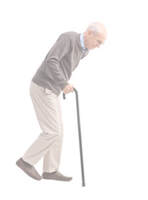|
Behind Closed Doors “ Elder abuse has been defined by the World Health Organisation as ‘a single, or repeated act, or lack of appropriate action, occurring within any relationship where there is an expectation of trust which causes harm or distress to an older person”. Author: Hanny Naus, Elder Abuse National Educator for Age Concern NZ  Elder abuse can take various forms, including financial, physical, psychological, emotional and sexual abuse, or neglect. No older person should be subjected to any form of abuse. Age concern New Zealand is a charity dedicated to helping older New Zealanders have a good quality of ‘later ‘life, and unfortunately, supporting people who are experiencing elder abuse is significant part of their operation. Hanny Naus, professional educator, elder abuse and neglect (and registered social worker) at Age Concern New Zealand loves her job advocating for people who deserve to be treated well, and with the dignity and respect, and said: “It is great to be part of such a dedicated, caring and expert team but the real reward comes in helping the most vulnerable when they are unable to help themselves. “Elder abuse is a hard issue to raise, and it is often underreported due to the perceived shame that may bring to a family. But we cannot turn a blind eye any longer as in many situations people’s choices are being disregarded, they are not getting the care they need, and their voices are not being listened to”. Hanny is working hard to increase awareness of elder abuse and to get more people asking questions within their families and communities. Hanny says many people think it won’t happen to them or to someone in their family, so it is confronting when it does. However, Age Concern would rather people seek support early, than let it go and have it escalate. “If one suspects something is not right, even have a notion that something doesn’t feel right or have an inkling someone is being abused then ask for help. These are often complex situations because they involve family members so always make sure you talk to a range of people within the family, as they might be worries too,” adds Hanny. Raising Awareness It is horrible that this type of behaviour is taking place in our families, neighbourhoods and communities as everyone has the right to be treated with dignity and respect. The theme for World Elder Abuse Awareness Day in mid-June this year was Elder Abuse Hits close to Home and Age Concern New Zealand highlighted the fact that more than three quarters of alleged abusers are family members. “We see too many adult children and grandchildren taking advantage and manipulating their parents and grandparents,“ adds Hanny. The overall campaign was a success, but Age Concern want to continue to strengthen conversations around elder abuse as they believe and think that bringing the issue out of the shadows will encourage those who are silently suffering to reach out for help. So, what does elder abuse look like in New Zealand? What is Elder Abuse? Elder abuse occurs where an older person is harmed (physically, emotionally or financially) through the actions of another: usually those they trust. No one is immune. It can happen to men and women of every culture, faith, ethnicity, and socio-economic group. It affects those who own a great deal, those who own very little and all those in between who are unable to effectively protect themselves. Elder abuse is a very serious issue. It is estimated that at least 17,000 older people in New Zealand are being abused. Last year Age Concern investigated more than 2400 cases of elder abuse – that is nine referrals each working day. What does elder abuse look like? It is common for several types of abuse occur together. The types of abuse include: Psychological abuse: Actions and words that cause misery, anxiety of fear, For example:
Financial Abuse: Illegal or improper use of money, property, or other assets. For example:
Scams that establish relationship with the older person for exploitation e.g romance scams. Physical Abuse: Infliction of pain, injury or use of force. For example:
Neglect: Not providing for physical, emotional or social needs. For example:
Neglect: Non-consensual sexual acts or exploitive behaviours. For example:
Institutional abuse: A policy or accepted practice within an organisation that does not respect person’s rights or causes them harm or distress. For example:
Why don’t older people seek help when they are abused? Some of the reasons why an older person does not tell anyone about the abuse are:
How can you tell if someone is being abused or neglected? The following signs may indicate an older person is being abused
Whether it is perceived as need or as greed, those who perpetrate elder abuse are disregarding those who trust them. The personal losses associated with abuse can be devastating and include the loss of independence, homes, lifesavings, health, dignity and security. Elder abuse and neglect can also be a significant cause of injury, illness, lost productivity, isolation and despair. Abuse can reduce a person’s independence by undermining their self-esteem and confidence. It also damages family/Whanau relationships, financial security and mental and physical health, increasing dependency on health and support agencies that may result in the need for residential care. It has been established that many older people do not like to reach out for help because their family is sometimes the only support they have. They may also feel embarrassed and ashamed to speak out about what their family is doing to them. If there is concern and one can talk to the older person about the possible abuse, be sure to only do so when they are alone and the potential abuser is not within earshot. Let the older person know you care about them and are worried for them. Giving encouragement and support is an important way people can help an older person to take action.  How you can help: Tips to be kind and prevent abuse
What else can you do? Take a stand against ageism with Age Concern and sign up on www.ageconcern.org.nz as an Age Concern New Zealand Dignity Champion and pledge to:
If you or someone you know has questions about elder abuse, they can get in touch with their local Age Concern for free and confidential advice and support by visiting www.ageconcern.org.nz or Freephone 0800 65 210. If there is a crisis or emergency and someone’s safety is at risk please call emergency services on 111. If you would like more details about being an Age Concern Dignity Champion, please visit www.ageconcern.org.nz. Reference: Author: Hanny Naus, Elder Abuse National Educator for Age Concern NZ Aged Care NZ Issue 02 2021 Comments are closed.
|
AuthorShonagh O'Hagan Archives
July 2024
|

 RSS Feed
RSS Feed